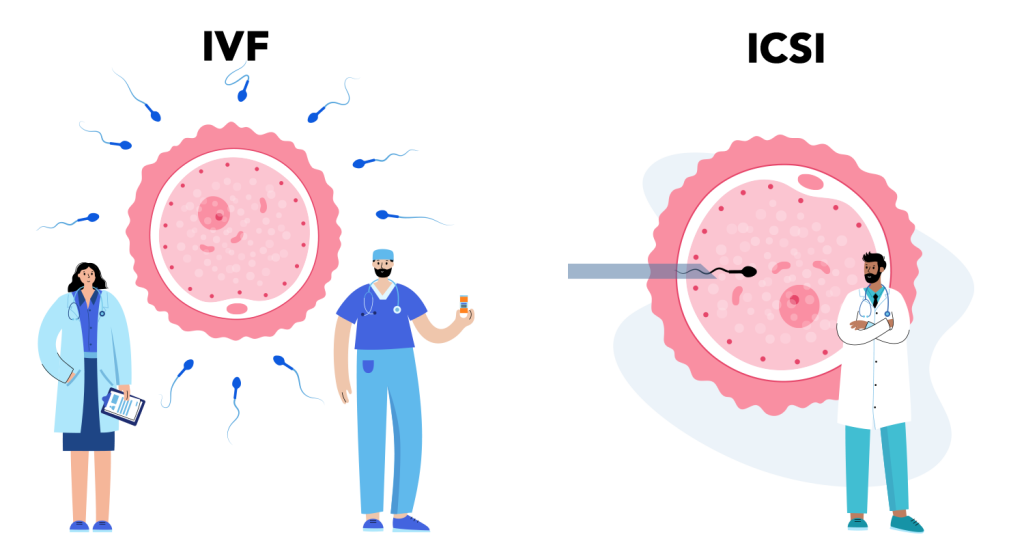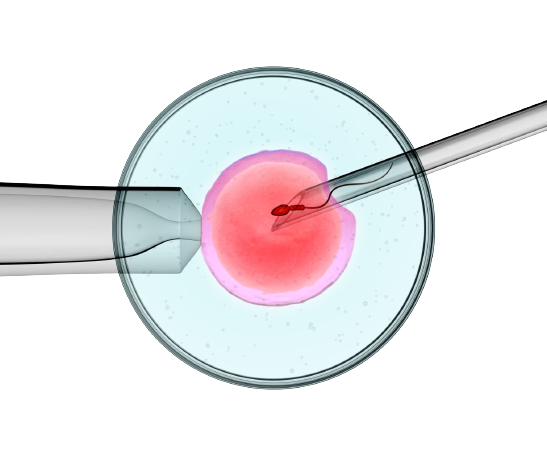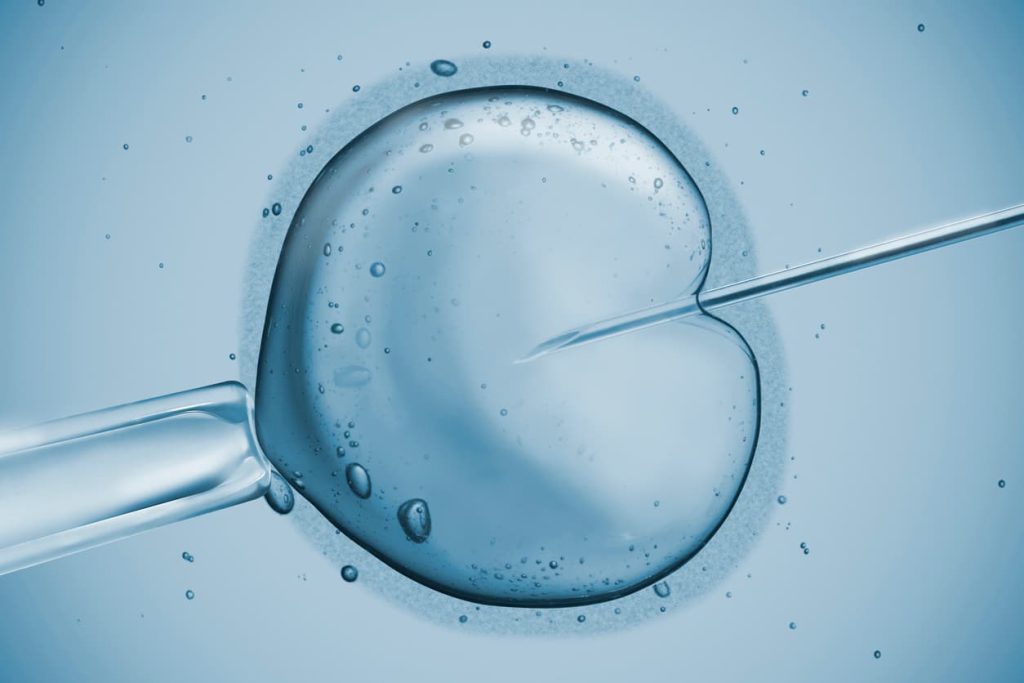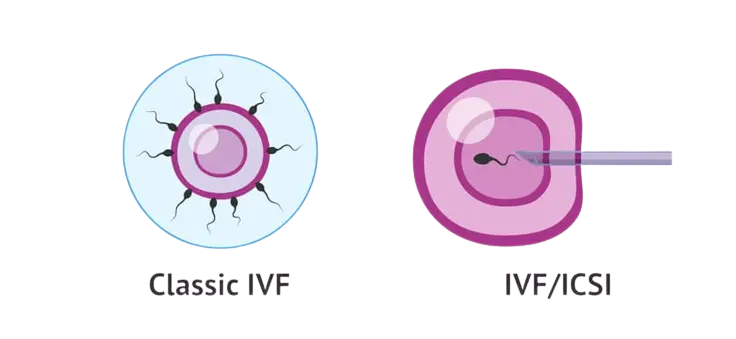Our Service
Home
Services
Intracytoplasmic Sperm Injection (ICSI)
For people experiencing infertility, intracytoplasmic sperm injection (ICSI) may lead to a successful pregnancy. This type of in vitro fertilization (IVF) is most helpful when there are male infertility issues. Your healthcare provider injects sperm into an egg to aid conception. Pregnancy may happen after an embryo transfer.

Who needs ICSI Treatments?
- Anejaculation (inability to ejaculate)
- Blockage in their male reproductive system
- Low sperm count
- Poor sperm quality
- Retrograde ejaculation (semen flows backward into their bladder)
How is ICSI different from IVF?

ICSI is a type of IVF. With traditional IVF, your healthcare provider places thousands of sperm next to an egg on a laboratory dish. Whether one of the sperm penetrates the egg to fertilize it is left up to chance. If none of the sperm fertilize the egg, conception (also called fertilization) doesn’t occur.
ICSI promotes fertilization through the direct injection of a single sperm into a single egg. Still, ICSI doesn’t guarantee fertilization.
In both ICSI and traditional IVF, your healthcare provider implants the fertilized egg (embryo) into your uterus. Pregnancy occurs if the embryo attaches to the lining of your uterus.
What happens during intracytoplasmic sperm injection?

During ICSI, the doctor:
- Uses a pipette (small glass tube with a suction bulb) to hold the mature egg in place on a lab dish.
- Immobilizes and picks up one sperm using a thin needle.
- Inserts the needle into the egg to reach the cytoplasm.
- Injects the sperm into the cytoplasm.
- Withdraws the needle from the egg.
What are the risks of ICSI?
These complications may occur with ICSI:

- Damage to some or all of the eggs during needle penetration.
- An egg doesn’t fertilize after the sperm injection.
- An embryo stops developing in the lab or after embryo transfer.
Book an Appointment
Get in touch with our team
Specialised care from the best team of doctors along with a widely trusted high risk pregnancy specialist in Pune. Sail smoothly through high risk pregnancies.
